第81章 Section 2(2)
'Not counting those. Of course, the present indexing of research is in itself a very big work, and it is only now that we are getting it properly done. But already we are feeling the benefit of that. Since it ceased to be a paid employment and became a devotion we have had only those people who obeyed the call of an aptitude at work upon these things. Here--I must show you it to-day, because it will interest you--we have our copy of the encyclopaedic index--every week sheets are taken out and replaced by fresh sheets with new results that are brought to us by the aeroplanes of the Research Department. It is an index of knowledge that grows continually, an index that becomes continually truer. There was never anything like it before.'
'When I came into the education committee,' said Karenin, 'that index of human knowledge seemed an impossible thing. Research had produced a chaotic mountain of results, in a hundred languages and a thousand different types of publication. . . .' He smiled at his memories. 'How we groaned at the job!'
'Already the ordering of that chaos is nearly done. You shall see.'
'I have been so busy with my own work----Yes, I shall be glad to see.'
The patient regarded the surgeon for a time with interested eyes.
'You work here always?' he asked abruptly.
'No,' said Fowler.
'But mostly you work here?'
'I have worked about seven years out of the past ten. At times I go away--down there. One has to. At least I have to. There is a sort of grayness comes over all this, one feels hungry for life, real, personal passionate life, love-making, eating and drinking for the fun of the thing, jostling crowds, having adventures, laughter--above all laughter----'
'Yes,' said Karenin understandingly.
'And then one day, suddenly one thinks of these high mountains again....'
'That is how I would have lived, if it had not been for my--defects,' said Karenin. 'Nobody knows but those who have borne it the exasperation of abnormality. It will be good when you have nobody alive whose body cannot live the wholesome everyday life, whose spirit cannot come up into these high places as it wills.'
'We shall manage that soon,' said Fowler.
'For endless generations man has struggled upward against the indignities of his body--and the indignities of his soul. Pains, incapacities, vile fears, black moods, despairs. How well I've known them. They've taken more time than all your holidays. It is true, is it not, that every man is something of a cripple and something of a beast? I've dipped a little deeper than most; that's all. It's only now when he has fully learnt the truth of that, that he can take hold of himself to be neither beast nor cripple. Now that he overcomes his servitude to his body, he can for the first time think of living the full life of his body....
Before another generation dies you'll have the thing in hand.
You'll do as you please with the old Adam and all the vestiges from the brutes and reptiles that lurk in his body and spirit.
Isn't that so?'
'You put it boldly,' said Fowler.
Karenin laughed cheerfully at his caution.... 'When,' asked Karenin suddenly, 'when will you operate?'
'The day after to-morrow,' said Fowler. 'For a day I want you to drink and eat as I shall prescribe. And you may think and talk as you please.'
'I should like to see this place.'
'You shall go through it this afternoon. I will have two men carry you in a litter. And to-morrow you shall lie out upon the terrace. Our mountains here are the most beautiful in the world....'